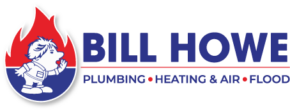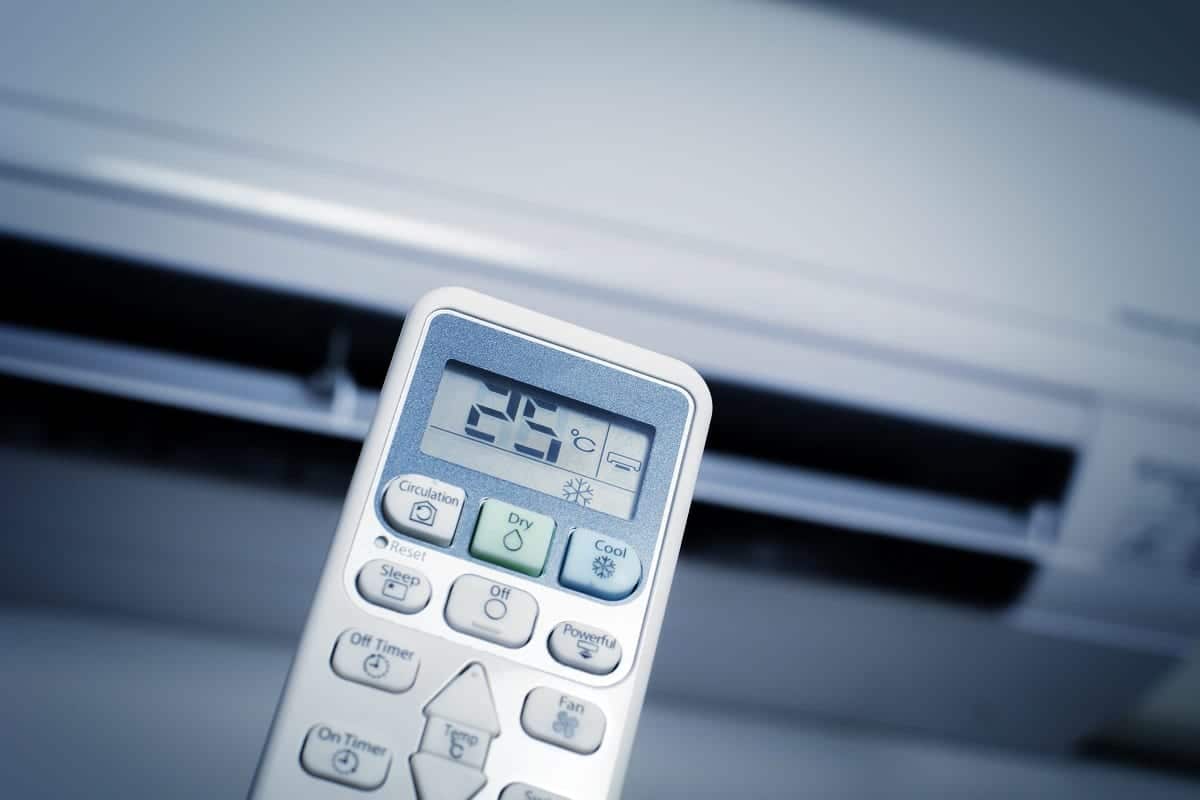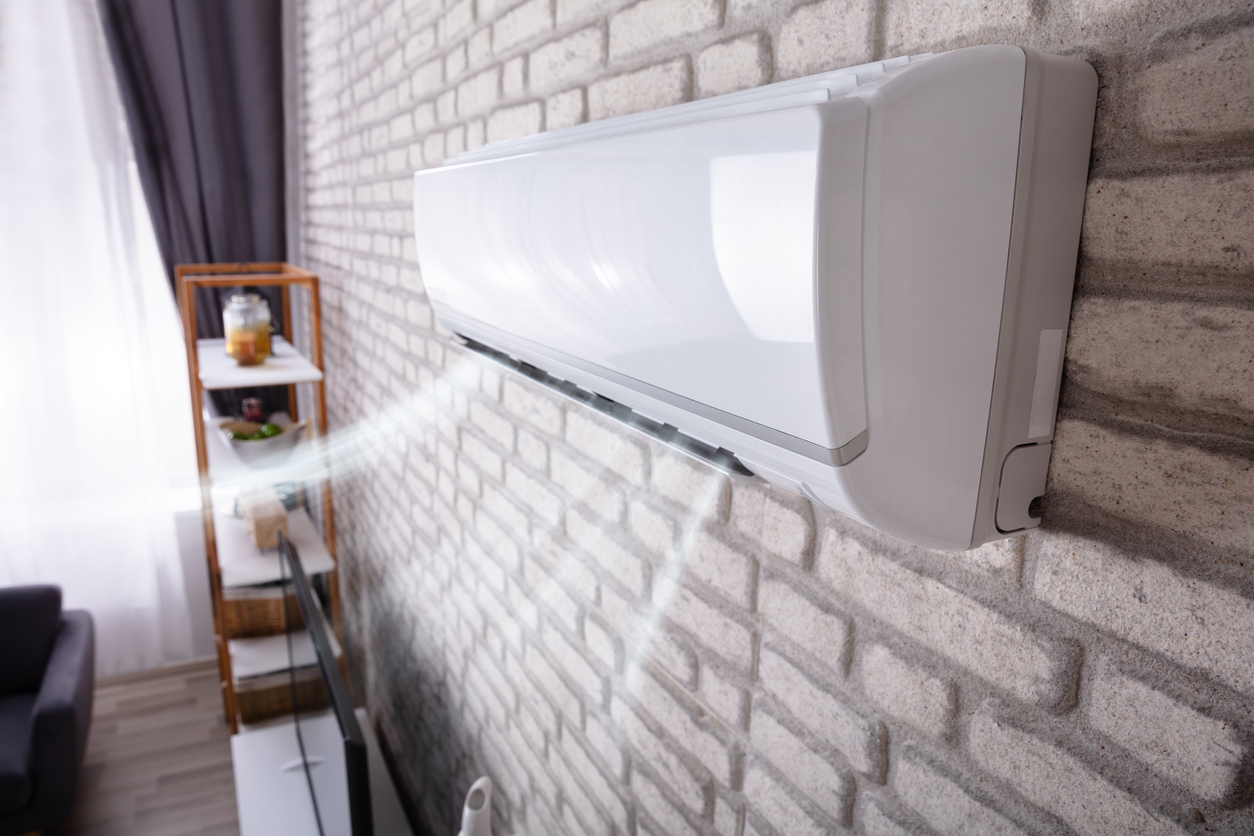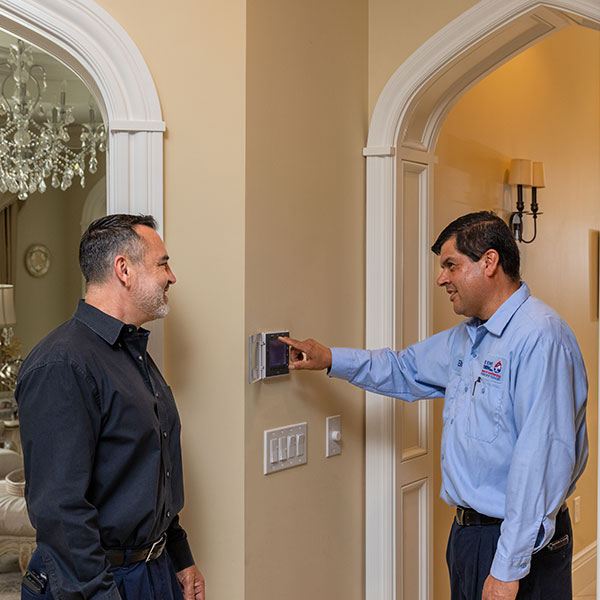Natural gas furnaces have basic components that create the warm air circulating through your home.
Thermostat
A thermostat is the furnace component homeowners use the most. From programming to troubleshooting, the thermostat controls the entire system. Many homeowners invest in a smart thermostat that can be controlled from a smartphone or tablet. This allows greater efficiency and control over heating your home, from e anywhere at any time.
When the furnace stops working, often, the thermostat is the best place to start. Batteries are a common issue, and many homeowners can change out the batteries themselves. Other issues may be a connector wire that is loose, a blown fuse or breaker.
Burners
The furnace burners are ignited when the thermostat is set or programmed. The furnace uses a pilot light to ignite the gas burners. It is important that the burners are cleaned annually. A clear blue flame is an ideal color for the burners once ignited. If the flame is yellow or flickers, homeowners should turn the furnace off and call a professional to service the furnace.
Flue/Venting
All appliances in the home running on natural gas pose a safety risk. It is important that homeowners choose licensed contractors to perform all service, repair and installation of their heating units and understand how safe operation works so they can identify issues.
The flue or venting removes the hazardous offgasses outside of the home. Proper venting is imperative to keeping your home and family safe from poisonous carbon monoxide poisonous. Homeowners should also have carbon monoxide detectors installed in the home if they have any natural gas appliances such as the furnace, water heater, or stove.
Heat Exchanger
The heat exchanger is perhaps one of the most important heating elements of the furnace. The heat exchanger contains a series of tubes and coils. When the fuel is ignited and burners turn on, it heats the coils. The air is then moved over the heat exchanger and warms the temperature of the air entering the home.
Blower
The blower works with the other components of the furnace to produce warm air circulating through the home. The blower is a fan housed inside of the furnace and sits over the heat exchanger. When the blower kicks on, it blows the air over the warmed coils and through the air vents or registers.
Plenum
The furnace plenum is the conduit for the ductwork and helps to direct the heated air through the home. The plenum is made of galvanized sheet metal and sits at the furnace outlet.
Efficiency and Safety
Furnace efficiency is measured by Annual Utilization Efficiency or AFUE. AFUE is the ratio of heat output to energy consumption. A rating of 90 percent means that 90 percent of the energy creates heat and 10 percent is lost. Additional heat loss, not measure by AFUE can occur through leaking ducts and the homes natural ventilation.
There are also different types of furnaces that can help increase efficiency. Single stage, two stage, and variable speed stage furnaces have different levels of operation to help save on the cost of energy bills and provide the perfect level of comfort during the winter.
Single stage furnaces are not as efficient since they have two settings, on and off. Two stage or variable speed furnaces offer multiple operation stages to make the most of heating your home while saving on energy waste.
Safety should play as important of a role in purchase decisions as efficiency. Furnace safety is easy to control when choosing licensed contractors and properly maintaining the for furnace maintenance.
Homeowners should schedule a furnace tune-up each year. This can keep your furnace running longer, more efficiently and identify any safety issues before they pose a danger to your home. Licensed HVAC contractors will inspect the furnace, heat exchanger, and clean the burners. They will also change or clean the filter, an important part of an efficient system.
If homeowners suspect a safety concern, do not use the furnace and contact your local utility company or HVAC licensed contractor to perform a safety inspection.
Furnace Problems
One of the most common issues with a furnace problems is a clogged or dirty filter. A clean filter is one of the most important ways to keep your system running efficiently and improves the overall indoor air quality. When the filter is clogged, the system works harder and can even permanently damage the furnace.
Fuses and breakers can also short, and while homeowners can often reset the breakers, it is recommended to hire a professional HVAC contractor to repair any blown fuses. It can be dangerous working with electricity.
The system can also run but not produce heat. If the system kicks on and no heat comes from the registers, contact a professional as it could potentially be a serious issue.
Maintaining your furnace is the best thing a homeowner can do. A dirty and poorly maintained system will break down before its time and cost more in utility costs.
Choosing the Right Furnace
When homeowners are looking to replace their old and inefficient furnace, the HVAC professionals at Bill Howe have the right option for any home needs.
A Bill Howe Home Comfort Advisor will provide a free onsite estimate so they can determine the needs of the home and family and design the right heating system.
Bill Howe Heating & Air specializes in high-efficiency systems form York, Mitsubishi and Daikin. For homes without ducting or for families looking for more control over zone heating and cooling, ductless mini split systems are the perfect choice, plus they are some of the higher efficacy options.
Bill Howe will determine the right size and type of furnace to ensure proper function and operation while providing the perfect maintenance program to keep your system in perfect condition.
For all of your home heating needs, call the experts at 1-*800 BILL HOWE (245-5469) or book your free estimate online today.




